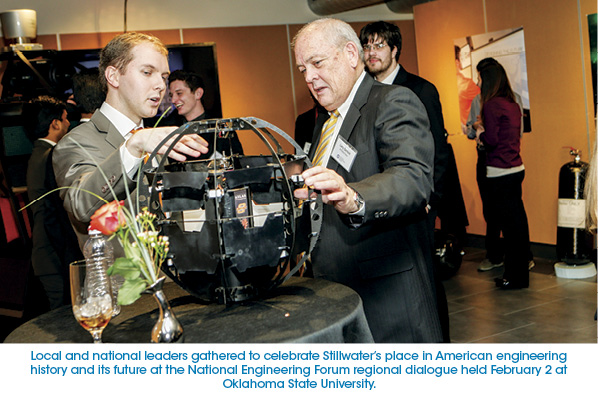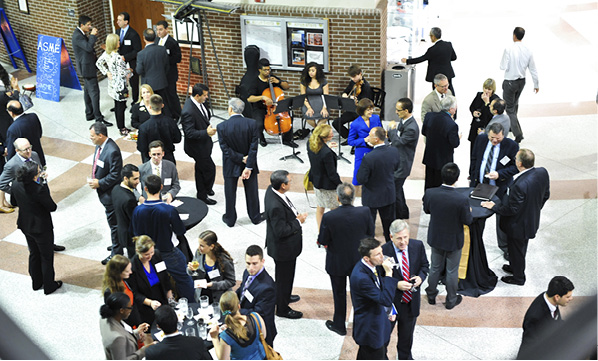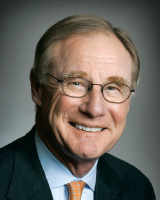Clemson Elevates Engineering, Brings National Engineering Forum to South Carolina
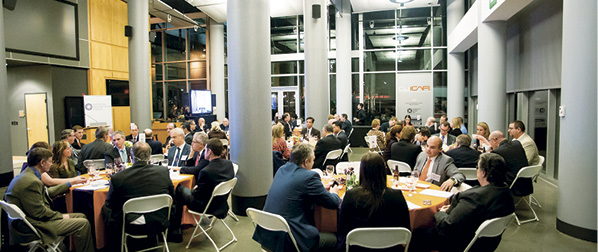
Industry, government, and academic leaders from the greater Greenville region gathered on February 18, 2016 for a NEF regional dialogue marking South Carolina’s place in American engineering. Clemson University and its president, Dr. James P. Clements, hosted the event at the Clemson University International Center for Automotive Research, with executives from Boeing, GE Power, Duke Energy, and Michelin providing a local perspective on challenges facing engineering.
Key Themes from the Regional Dialogue
Keith Young, director of composites technology for Boeing, provided the evening’s keynote remarks, highlighting the critical demographic challenges facing engineering intensive enterprises—with a potential shortfall in the current rate of graduating engineers coupled with the expected and dramatic number of retiring engineers over the next five years.
Following the keynote remarks, a group of leaders – Clark Gillespy, president of Duke Energy, South Carolina; David Stafford, vice president, personnel, and chief human resources officer, Michelin North America; and Kurt Goodwin, general manager of advanced manufacturing works, General Electric – took a deeper dive into each of the NEF’s “3 C’s” of engineering: Capacity, Capability, and Competitiveness.
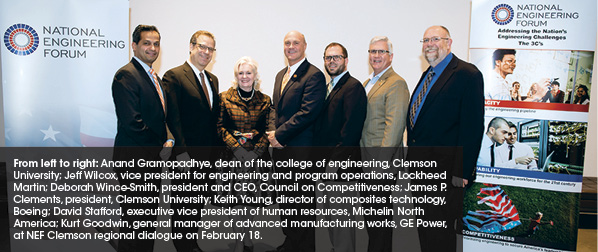
Addressing a wide range of issues, all reiterated the need to inspire a broad array of students to look toward engineering as a career path, especially those interested and able to collaborate with colleagues outside engineering disciplines. Dialogue participants continued this theme in conversation, noting more must be done to attract students from varied backgrounds into engineering and equip them with the tools to engage in creative professions. Participants emphasized that breaking down traditional silos and driving collaboration with a diverse peer group facilitates learning and innovation. While these changes may take time to implement, participants were confident current and future engineers will have the diversity of thought to address America’s engineering challenges.
Recommendations that Emerged from the Dialogue
- Expose primary and secondary education students to engineering by leveraging local industry and manufacturing centers
- Break down silos between engineering disciplines to improve collaboration and problem solving
- Engage the next generation of engineers by communicating the ability of engineers to build the future
- Connect industry leaders to academia, ensuring educators are developing appropriate skills in students
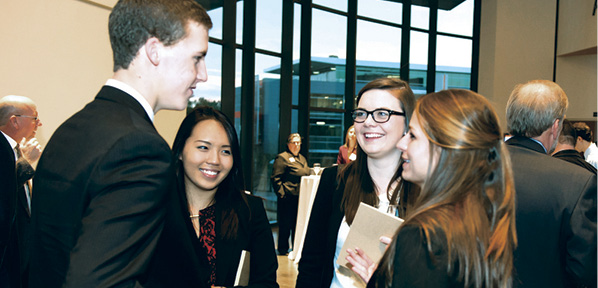
The information above was published with permission from NEF, which brings together leaders concerned about the sustainability of engineering in the United States and the impact on the nation’s security and prosperity. NEF involves industry executives, academics, policymakers, media, engineering societies, and nonprofits to develop solutions to the challenges facing the U.S. engineering enterprise. For more information, contact by phone: 202-969-3410; by email: info@nationalengineeringforum.com, or on the web: www.nationalengineeringforum.com.
Photos courtesy of Clemson University

